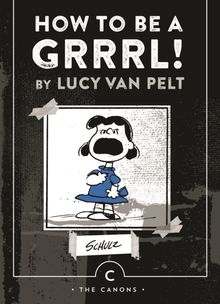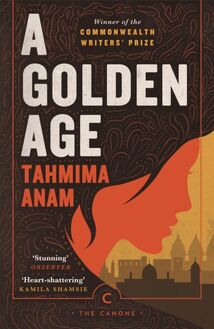Dream Angus , livre ebook
62
pages
English
Ebooks
2008
Vous pourrez modifier la taille du texte de cet ouvrage
Obtenez un accès à la bibliothèque pour le consulter en ligne En savoir plus
Découvre YouScribe en t'inscrivant gratuitement
Découvre YouScribe en t'inscrivant gratuitement
62
pages
English
Ebooks
2008
Vous pourrez modifier la taille du texte de cet ouvrage
Obtenez un accès à la bibliothèque pour le consulter en ligne En savoir plus
Publié par
Date de parution
30 octobre 2008
Nombre de lectures
0
EAN13
9781847673992
Langue
English
Poids de l'ouvrage
1 Mo
Publié par
Date de parution
30 octobre 2008
Nombre de lectures
0
EAN13
9781847673992
Langue
English
Poids de l'ouvrage
1 Mo
Alexander McCall Smith is the author of over fifty books, including the No. 1 Ladies’ Detective Agency series of novels and several collections of short stories, including The Girl Who Married a Lion and Heavenly Date and Other Flirtations. Many of his books have become bestsellers throughout the world and he has received numerous awards for his writing, including the British Book Awards Author of the Year Award in 2004 and a CBE for Services to Literature in 2007. He lives in Scotland.
Also by Alexander McCall Smith
No. 1 Ladies’ Detective Agency Series
The No. 1 Ladies’ Detective Agency The No.1 Ladies’ Detective Agency Tears of the Giraffe Morality for Beautiful Girls The Kalahari Typing School for Men The Full Cupboard of Life In the Company of Cheerful Ladies Blue Shoes and Happiness The Good Husband of Zebra Drive The Miracle at Speedy Motors Tea Time for the Traditionally Built The Double Comfort Safari Club The Saturday Big Tent Wedding Party The Limpopo Academy of Private Detection The Minor Adjustment Beauty Salon The Handsome Man’s De Luxe Café The Woman Who Walked in Sunshine Precious and Grace The House of Unexpected Sisters The Colours of all the Cattle
44 Scotland Street Series
44 Scotland Street Espresso Tales Love Over Scotland The World According to Bertie The Unbearable Lightness of Scones The Importance of Being Seven Bertie Plays the Blues Sunshine on Scotland Street Bertie’s Guide to Life and Mothers The Revolving Door of Life The Bertie Project A Time of Love and Tartan
The Sunday Philosophy Club Series
The Sunday Philosophy Club Friends, Lovers, Chocolate The Right Attitude to Rain The Careful Use of Compliments The Comfort of Saturdays The Lost Art of Gratitude The Charming Quirks of Others The Forgotten Affairs of Youth The Uncommon Appeal of Clouds The Novel Habits of Happiness A Distant View of Everything The Quiet Side of Passion
Professor Dr von Igelfeld Series
Portuguese Irregular Verbs The Finer Points of Sausage Dogs At the Villa of Reduced Circumstances Unusual Uses for Olive Oil
Corduroy Mansions Series
Corduroy Mansions The Dog Who Came in from the Cold A Conspiracy of Friends
Other Novels
La’s Orchestra Saves the World Trains and Lovers The Forever Girl Fatty O’Leary’s Dinner Party Emma: A Modern Retelling My Italian Bulldozer The Good Pilot, Peter Woodhouse
Short Stories
Heavenly Date: And Other Flirtations The Girl Who Married a Lion The Baboons Who Went This Way and That Chance Developments
Non-Fiction
What W.H Auden Can Do for You A Work of Beauty A Gathering: A Personal Anthology of Scottish Poems (Edited by Alexander McCall Smith)
This Canons edition published in 2019 by Canongate Books
First published in Great Britain in 2006 by Canongate Books Ltd, 14 High Street, Edinburgh EH1 1TE
This digital edition first published in 2008 by Canongate Books Ltd
canongate.co.uk
Copyright © Alexander McCall Smith, 2006
The moral right of the author have been asserted
British Library Cataloguing- in-Publication Data A catalogue record for this book is available on request from the British Library
eISBN 978 1 84767 399 2
For Malcolm and Nicola Wood
CONTENTS
Introduction
1 There was water
2 His child grew within her
3 That was then; this is now. But he is still here.
4 The childhood of Angus
5 My brother
6 Angus finds out that his father is not his father
7 Another boy finds out that his father is not his father
8 Angus is kind to pigs
9 Is there a place for pigs there?
10 I dream of you
Introduction
This story is a retelling of the myth of Angus, a popular and attractive figure of the Celtic mythology of Ireland and Scotland. Angus is a giver of dreams, an Eros, a figure of youth. He comes down to us from Irish mythology, but he is encountered, too, in Celtic Scotland. He is a benign figure – handsome and playful – who in modern times has inspired not only the poem of W.B. Yeats, ‘The Song of Wandering Aengus’, but also the lilting Scottish lullaby, ‘Dream Angus’.
In this version of the story of Angus, although I have taken some liberties with the original, I have tried to maintain the central features of Angus’s life as these are revealed to us in the Irish mythological sources. These sources, though, do not provide much detail, and so I have imagined what his mother, Boann, might be like; I have interpreted the character of his father, the Dagda, in a particular way and have deprived him of the definite article that precedes his name; I have assumed that Bodb was rather overbearing. Purists may object to this, but myths live, and are there to be played with. At the same time, it is important to remind readers of the fact that if they want the medieval versions, unsullied by twenty-first-century interpolation, they still exist, and are accessible. We must bear in mind, however, that those earlier texts are themselves reworked versions of things passed from mouth to mouth, embroidered and mixed up in the process. Myth is a cloud based upon a shadow based upon the movement of the breeze.
Celtic mythology is a rich and entrancing world, peopled by both mortals and gods. It embraces the notion of parallel universes, the real world and the otherworld. There are signs of the otherworld in the real world – mounds, hills and loughs – and the location of mythical places is frequently tied to real geographical features. It is no respecter of chronology, though, even if the later Irish heroic tales claim to have happened at a particular time in history. Angus belongs to the early body of stories – stories of a time beyond concrete memory.
* * *
In retelling the story of Angus, I have brought him into the modern world in a series of connected stories which for the most part take place in modern Scotland. The part played by Angus, or the Angus figure, in each of these, may be elusive, but such a figure is present in each of them. Unlike some mythical figures, Angus does no particular moral or didactic work: he is really about dreams and about love – two things that have always had their mysteries for people. Angus puts us in touch with our dreams – those entities which Auden described so beautifully in his Freud poem as the creatures of the night that are waiting for us, that need our recognition. But Angus does more than that: he represents youth and the intense, passionate love that we might experience when we are young but which we might still try to remember as age creeps up. Age and experience might make us sombre and cautious, but there is always an Angus within us – Angus the dreamer.
Alexander McCall Smith, 2006
1
There was water
This happened in Ireland, but the memory of it is in Scotland too. The precise location of things was not so important then, as there was just the land and the sea between them, and people came and went between the lands, and they were brothers and sisters. The land itself was beautiful, with hills that ran down to the sea, and there were cold green waves that broke on the rocks that marked the edge of the land. There were islands, too, with stretches of white sand, and behind the white sand there was the machair, which was made up of meadows on which grew yellow and blue flowers, tiny flowers.
The gods lived everywhere then, and they moved among the people. But there were some gods who had their own place, and they were sometimes very powerful, as Dagda was. He was one of the great gods, and his people lived on islands at the very edge of the world, where there is just the blue of the sea and the west beyond the blue. They came to Ireland on a cloud, and lived there. Dagda was one of them, the good one, and he had great power, with his cauldron in which there was limitless food, and his great club, with which he could slay many men with a single blow. But he was often kind to men, and he could bring them back to life with the other end of the club. He also had fecund fruit trees which never stopped bearing fruit, and two remarkable pigs, one of which was always being cooked while the other was always growing.
There are many stories of Dagda and his doings. This one is about how he came to father a boy called Angus, and how Angus delighted all who came across him. In many ways, this was Dagda’s greatest achievement, that he gave us this fine boy, who brought dreams to people, and who was loved by birds and people equally and who still is. For Dream Angus still comes at night and gives you dreams. You do not see him do this, but you may spot him skipping across the heather, his bag of dreams by his side, and the sight of him, just the sight, may be enough to make you fall in love. For he is also a dispenser of love, an Eros.
How was it that Dagda, a great and powerful god, a leader of warriors, should have had such a son? One might have thought, surely, that a god like that would have a son who was skilled in military matters, rather than a dreamer who fell in love and who was a charmer of birds. For an explanation of the gentleness of Angus, we must turn to his mother. She was a water spirit called Boann. Water spirits are gentle; their sons are handsome and have a sense of fun; they sparkle and dart about, just like water, which is the most playful of the elements.
Boann lived in a river. This was one of those rivers which was both great and small. There were places where its bed grew quite broad, and at such places one might walk across the river without getting even one’s ankles wet. At other places there were pools, deep and dark, with water the colour of peat, and in these pools swam trout who lived for many years and had a great wisdom of matters pertaining to water and fish. Then there were places where the river was in-between – not deep, but not shallow. These were good places for water spirits to live.
Boann lived in one of these places. She was shy, as water spirits often are, and it was possible to walk right past the place where she was and not s














